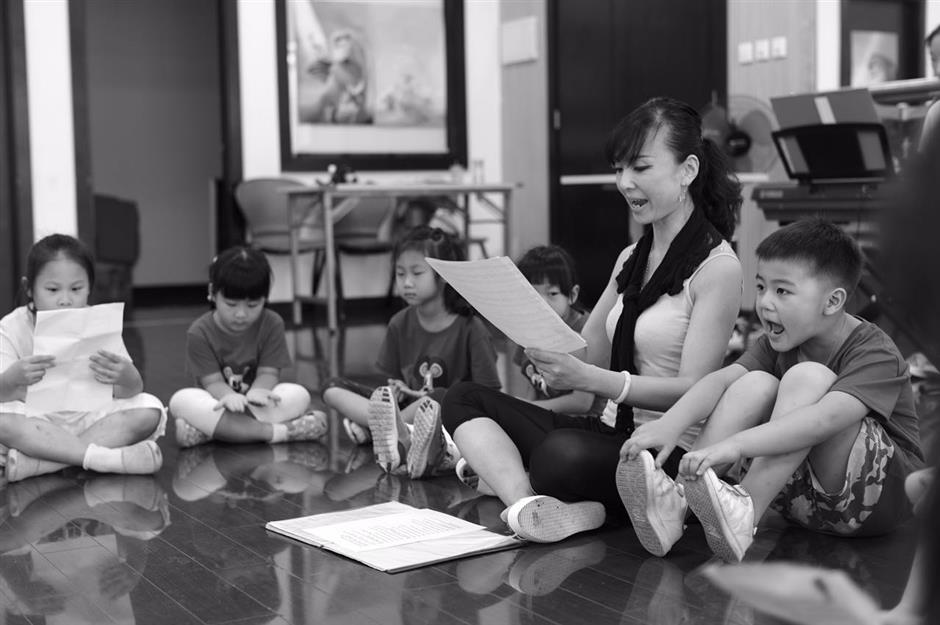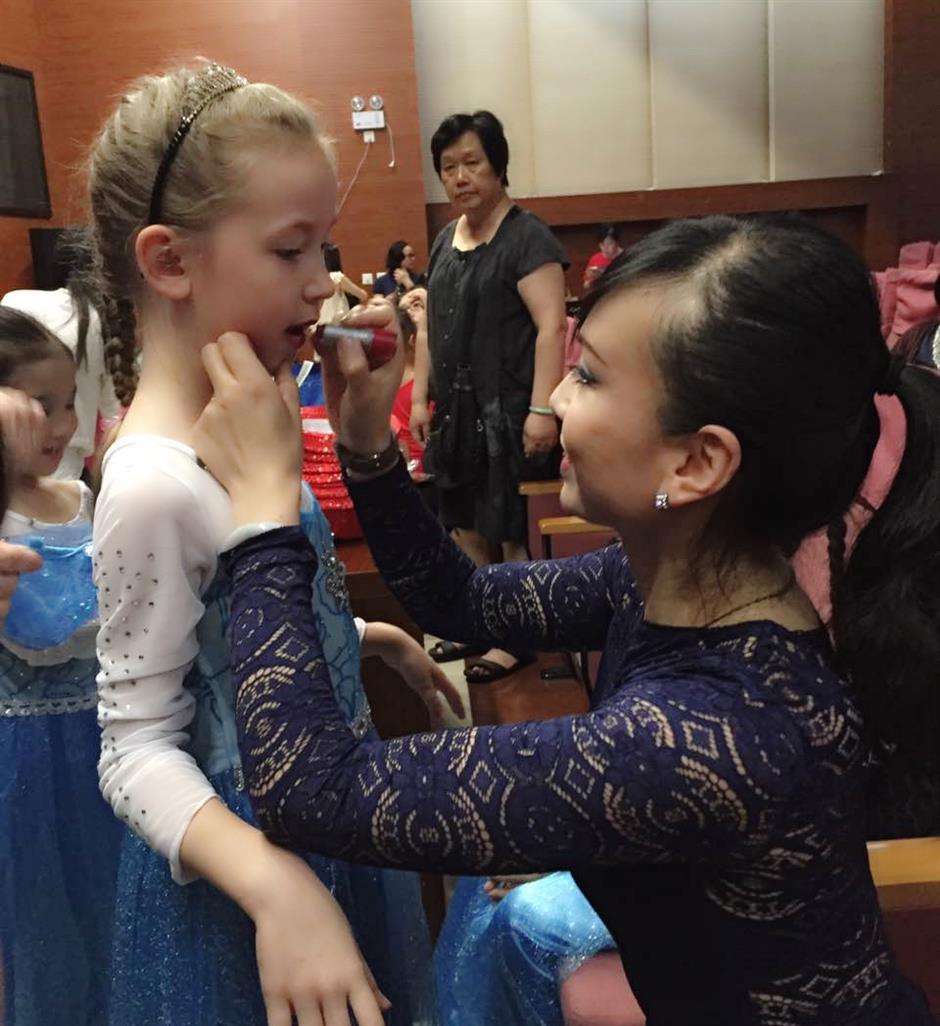Rejected at home, Yang finds fame abroad

Limin Yang divides her time between the Netherlands and China to help promote cultural exchange.
When she was turned down by the Shanghai Conservatory of Music — not once but three times — Limin Yang wouldn’t have thought that decades later she would be one of the most famous opera singers in the Netherlands.
“The professors rejected me because my voice was not rich enough for an opera singer,” Yang recalls. “I feel that it’s okay for me to tell these things now. But back then, when I was 18, it was a heavy blow.”
Yang didn’t let the failure bring her down. But when she was young and still hadn't been accepted, she decided to stop relying on her parents and found a job in a hotel.
“I earned 300 yuan (US$47) in 1988, which was more than many people at the time, but I didn’t give up singing. I kept on learning by myself.”
Since she was a child, Yang, born in Shanghai, had been determined to become an opera singer like her grandmother. Although her mother, a Yueju Opera actress, wanted her to follow in her footsteps, Yang’s heart was set on classical music.
After years of self-study and persistence, fate finally opened a door.
“Shanghai Conservatory of Music invited world-renowned singers to have master classes. Elly Ameling, a top opera singer from the Netherlands, was set to have a class. How could I miss it?
“Her voice is like a flute, and I was surprised because my voice sounded just like hers. People told me that mine couldn’t be a solo performer, but there she was,” she says.
Yang was a very shy person, but that day she squeezed her way through the crowd and gathered up all her courage to ask Ameling an abrupt question: “Can I come to the Netherlands and learn singing from you?”
Yang’s cousin, who was studying in the Netherlands, helped send a demo to the Royal Conservatory of The Hague. Yang was finally recognized and accepted as the first Chinese undergraduate.
“It was really difficult at first because I didn’t understand what the lecturers said, but the hardships forged my character,” she says. “I was an introvert but life made me ask around for help. I asked classmates to explain things to me and in exchange I would make them Chinese food.”
There were nine students on a course on the fundamentals of music theory in the first year, but by the time of graduation Yang was the only student who had stuck it to the end.

Yang performed at a Chinese New Year celebration in the Hague in 2004.

Limin Yang (front) collaborated with Dutch band 4 Beats in a concert in Shanghai to celebrate Dutch king's official visit to China in 2015.
Talent and persistence brought her fame and success. After becoming an actress in a Dutch musical company, Yang worked with Andrea Bocelli’s production team in 2001 and gave a recital at the Royal Concertgebouw in Amsterdam.
From 2001 to 2005, Yang performed every year at the Chinese New Year celebrations organized by the Hague municipal government.
To promote China-Holland relationship, Yang helped bring Dutch Tourism and Conventions and Shanghai’s Dragon TV together to film “Discover Holland” in 2006, which was a good introduction of Dutch education and culture.
Since 2005, Yang became an ambassador for Dutch-China cultural exchange. She did a number of visits to China, being assistant director of Dutch opera “Carmen” at the 2006 Shanghai International Arts Festival and performing for the Netherlands Pavilion at the World Expo Shanghai 2010.
In 2012, Yang founded the Netherlands-China Culture Exchange Foundation to promote exchange between Dutch and Chinese middle schools. Thanks to her effort, Shanghai’s No. 2 High School of East China Normal University and Ovc School in Almere-Buiten, the Netherlands, became sister schools in 2014.
With the support of the Shanghai government, Yang set up a culture center in Shanghai in 2013 to offer free musical course for children. She adopted Western education patterns to design courses and teaching materials suitable for Chinese kids. She also regularly hold musical summer and winter camps.
As an Aquarius, Yang sees herself as someone who never runs out of ideas. After giving birth to her daughter in 2000, Yang dabbled in children’s songs. While trying to teach her daughter some Chinese tunes, she found that there weren’t many available choices.

Yang teaches children the basics of musical at a summer camp in Shanghai.

Yang applies makeup to a member of her children's choir before a performance in the Netherlands.
“The composers seem to have forgotten about children’s needs. Kids sing popular hits or rap songs but don’t have songs of their own,” she says.
Yang thinks music is the golden key to develop the mental growth of children. So she began translating famous children songs by Dutch composer Tonny Eyk. The lyrics were written by Dutch children, covering from “My dad is a terrible cook but I still love him” to “I love sleeping.”
During this process, Yang discovered the benefits of music for children and, more importantly, that it could transcend language barriers and connect Chinese and Dutch together.
She set up a choir made up of children adopted from China to sing the songs, and they were invited to perform on talk show “Paul de Leeuw” and for The Hague government.
On maintaining a balance between work and family, Yang was confronted with a problem faced by many professional women. “My husband stayed at home for three years to raise our daughter and I appreciate everything he’s done. It is difficult because I’m always flying around, but I try to make meals for my family whenever I can.
“People are surprised that we are as strong and intimate as ever. They thought that I married my husband out of a pursuit of money or a green card, but I married for love,” she says.
“Despite all these years abroad, I’m still a traditional Chinese woman,” Yang says. “I’m still using silver chopsticks passed down from my grandmother.”

Yang (left) and her daughter
















